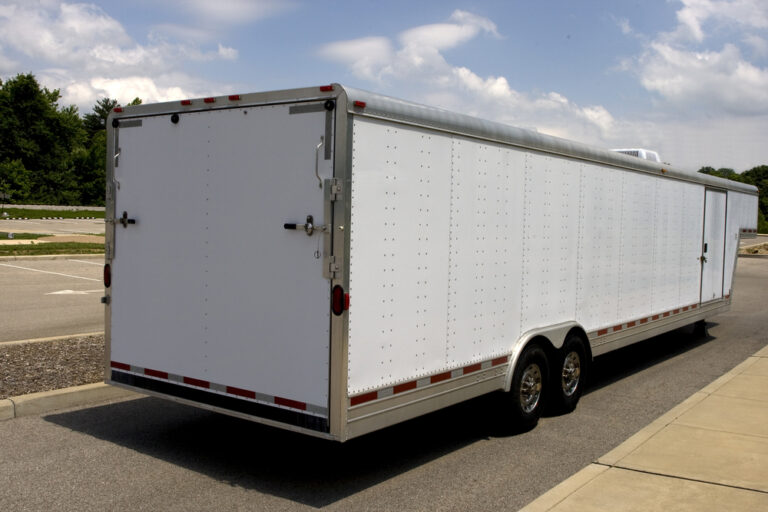Give your customers more buying power today!
Give your customers more buying power today!

Enclosed trailers serve as versatile workhorses, providing a secure and weather-resistant space for transporting various goods and equipment. However, like any other piece of equipment, enclosed trailers have a finite lifespan. Understanding the factors that influence their longevity is essential for making informed purchasing decisions and maintaining these trailers properly. In this blog post, we will explore the typical life expectancy of enclosed trailers, factors that impact their durability, and tips for maximizing their lifespan.
Construction Materials: The type and quality of materials used in constructing an enclosed trailer significantly impact its lifespan. Trailers constructed with high-quality steel or aluminum frames, durable flooring, and robust exterior panels tend to have a longer lifespan compared to those made with inferior materials.
How the trailer is used and maintained play crucial roles in determining its lifespan. Frequent and heavy usage, especially in harsh conditions, can accelerate wear and tear. Regular maintenance, including inspections, lubrication, and cleaning, helps identify and address issues before they worsen, ensuring optimal performance and longevity.
The environment in which the trailer operates also affects its lifespan. Trailers exposed to extreme temperatures, humidity, saltwater, or corrosive chemicals may experience accelerated deterioration. Additionally, exposure to harsh weather conditions, such as excessive rain or prolonged sunlight, can lead to premature aging of the trailer’s exterior components.
Overloading an enclosed trailer beyond its recommended capacity can strain its structural integrity. Uneven weight distribution or improper loading techniques can also contribute to premature wear, increased stress on axles, and potential damage to the frame or suspension components.
The life expectancy of an enclosed trailer can vary based on the factors mentioned above. However, with proper maintenance and usage, a well-built enclosed trailer can typically last anywhere from 10 to 20 years or even longer. Regular inspections, prompt repairs, and adherence to weight limits can significantly extend the trailer’s lifespan.

Routine Maintenance: Follow a regular maintenance schedule, including inspecting the trailer for signs of wear, lubricating moving parts, and cleaning both the interior and exterior. Address any issues promptly to prevent them from escalating.
Adhere to the trailer’s weight limits and distribute the load evenly. Use appropriate tie-downs and secure the cargo properly to prevent unnecessary stress on the trailer’s structure.
Whenever possible, park the trailer in a covered area or use protective covers to shield it from the elements. Avoid exposing the trailer to extreme weather conditions or corrosive substances.
Invest in quality trailer components such as tires, brakes, and suspension systems. Well-maintained and high-quality parts can contribute to the overall durability and longevity of the trailer.
Understanding the factors that influence the life expectancy of enclosed trailers is crucial for making informed decisions about their purchase, maintenance, and usage. While the typical lifespan of an enclosed trailer can range from 10 to 20 years or more, it ultimately depends on construction quality, maintenance practices, environmental factors, and usage patterns. By following proper maintenance routines, practicing responsible loading, and protecting the trailer from harsh conditions, owners can maximize the lifespan of their enclosed trailers, ensuring many years of reliable service. Contact C3 Rentals today for any other questions!